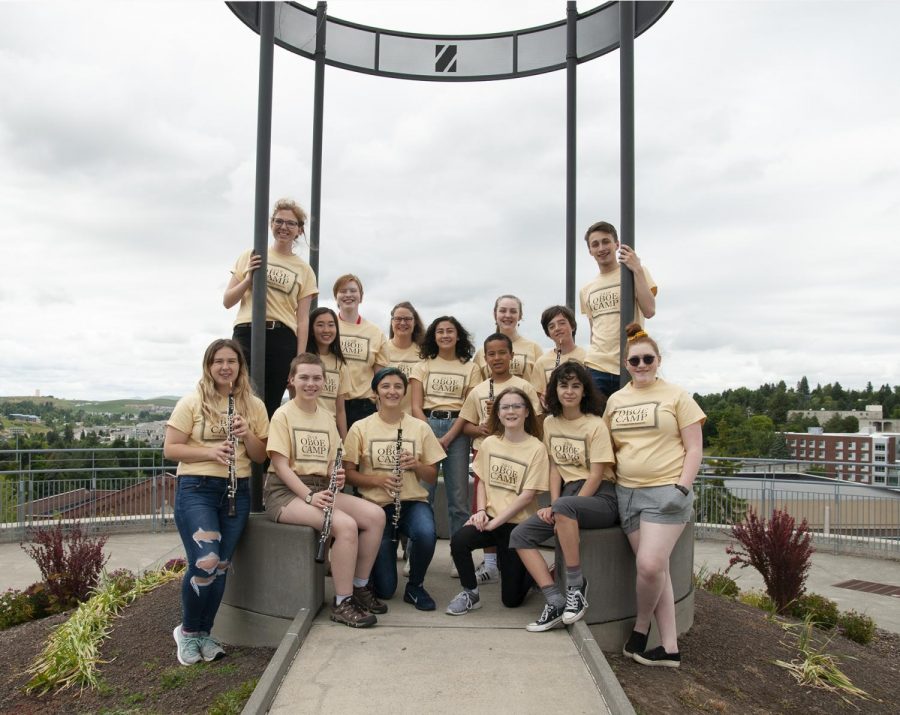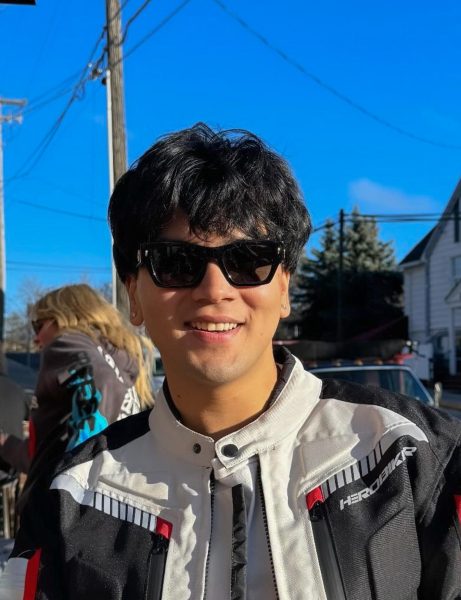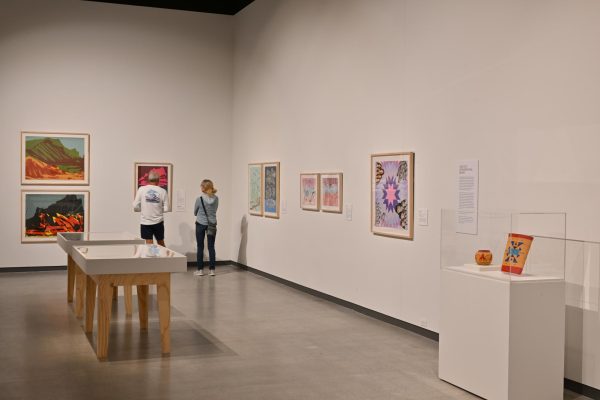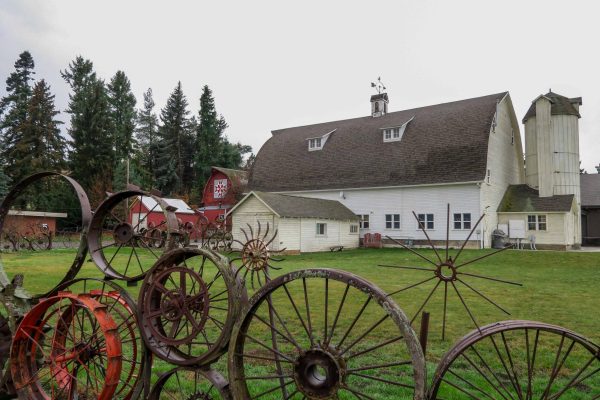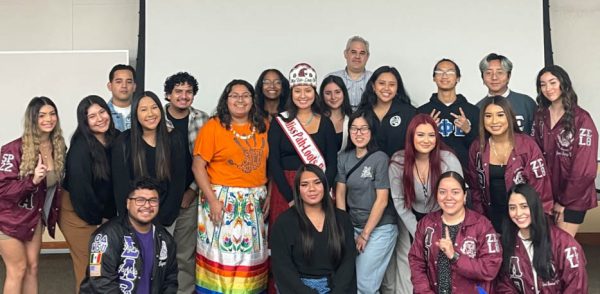Music camps move online to reach students
WSU’s Horn and Oboe camp switch to online learning to avoid “doing nothing”
Students of Oboe Camp 2019 pose for a group photo.
May 22, 2020
For the past three years, the WSU School of Music’s horn and oboe camps have provided middle and high school students with an environment to meet other students and practice their craft. However, with COVID-19, that environment is moving online.
The horn and oboe camps are a week-long excursion for students from seventh to 12th grade. Previously, students would live on campus for the week taking private lessons, playing chamber ensembles and doing some recreational activities. At noon on Friday, the students would stage a concert for the parents before finally leaving to go home.
Now the camp is moving online so students do not have to leave to begin with.
Horn Camp Director Martin King said they were monitoring COVID-19 closely as it developed. After spring semester moved online they suspended registration, reasoning that if WSU deemed it was not safe to hold summer classes on campus, they would not either.
Still, King said the camp had been growing in the past two years, and neither he nor Oboe Camp Director Keri McCarthy wanted to stop the momentum.
“We didn’t want to have a year where we did nothing,” King said. “We just thought we might as well try this and see what happens.”
Instructors will hold daily lessons and masterclasses, where a student plays for the entire class and King or McCarthy gives them feedback and holds group discussions, over Zoom. They are also going to provide the students with pre-recorded content, like warm-up procedures, lectures and reed-making tutorials McCarthy cannot provide in person. King said the students will be able to keep the videos to use as much as they want.
Switching to online also makes the camps cheaper and more accessible to families unable to transport their children to WSU, McCarthy said. They will still have time on Friday for the students to play for each other.
“It’s a first for [WSU] doing this type of experience online,” Dean Luethi, WSU’s School of Music director said. “We’re very excited about what this could mean.”
However, due to the new format, some things from previous years will have to be left behind. King said the students will not be able to play together because of the complications with latency time and internet connection. In oboe camp, McCarthy will not be able to teach students how to make reeds that fit their mouths, which she usually spent two hours a day on, because students might not have the materials at home.
There is also a loss of community with the switch to online, McCarthy said. Because horn and oboe are less-commonly taught, students do not often get the chance to meet other people with their instrument, she said.
“In a given high school situation, very often there are two or three oboists in an ensemble, or maybe in the whole school,” McCarthy said. “[Students] don’t have the opportunity to get together and talk about the challenges and successes and funny parts about what it is to be an oboist or horn player.”
Counselors will be holding evening socials so the students can get to know each other, but McCarthy said it will still be a struggle keeping the sense of community they had in-person.
“Some things are just going to have to be different, and that was one of the things I expected going in,” King said. “I needed to adjust my expectations and focus on providing the best experience I could.”
King said the most important thing is to make sure that he can bring his knowledge to students and support band and music directors in school by giving their students additional instruction over the summer.
“The single biggest consideration for me has been making sure that even in this time … I can still fulfill that mission of providing educational and musical service,” King said. “We don’t want to lose our ability to serve our state and serve our community.”
McCarthy said because these instruments are less commonly taught, it is important students have an environment where they can learn and meet other people who play their instrument.
“High school teachers often don’t have a lot of background with [oboe] so students have to get creative with how they make music with others, with limited instruction, in the public school setting,” McCarthy said. “This camp is going to allow them to have more specific instruction and develop a community that will support them throughout the next year and beyond.”
Both horn and oboe camp will occur from June 21-27. Registration for this year has ended.

